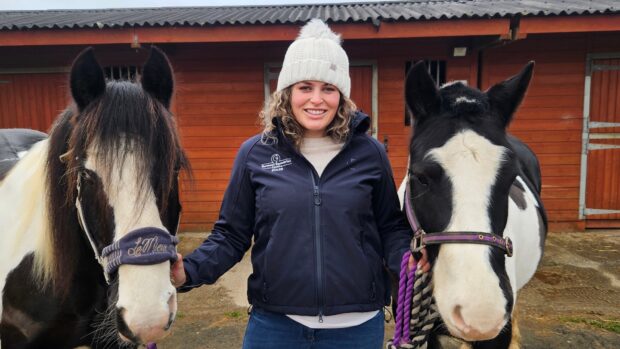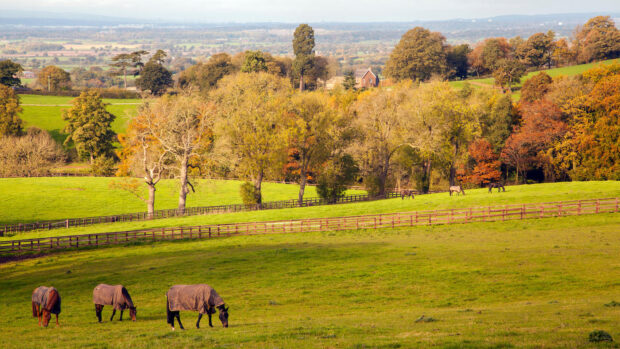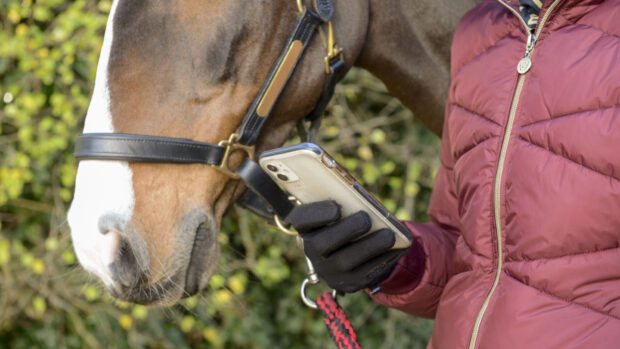Methods of raising genuine concerns safely and through the right channels rather than social media becoming judge and jury are key to equestrian sport.
Free speech and transparency are cornerstones of democracy, fair sport and horse welfare. But, Shonagh Stark said in a letter to H&H (3 March), the equestrian world should have “better publicised ways of allowing riders, owners and coaches to make a complaint safely and let it be heard before the relevant governing body – to allow them to do the judging, not social media”.
Although there are laws covering what is published online, public use of social media is not consistently regulated in the same way as British press and broadcasters and it can become a kangaroo court, causing far-reaching damage to individuals and sport.
There is a difference between constructive criticism, concerns and debate, and abuse online, and H&H asked how members of the public with genuine concerns can raise them in a way they can be dealt with appropriately.
British Dressage (BD) chief executive Jason Brautigam told H&H this “touches on a subject close to our heart” and is “at the centre of what we do as a national governing body”.
“Good communication is essential, but it has to be a two-way process: we are here to listen and respond to our members and the wider equestrian community,” he said.
“We appreciate feedback we receive from any of our stakeholders or the general public, positive or negative, as it helps inform our future plans and decision-making.”
He added: “We would agree that simply venting on social media can often be counterproductive and does little to address the core problems at hand. As such, we would encourage H&H readers to contact us directly if they would like to raise any particular issue and we will investigate it fully as a priority. In this way, we can ensure that matters are addressed and resolved in a way that has a satisfactory outcome for all parties.
“These are always handled sensitively, with due respect for privacy and confidentiality, but there will always be follow-up communication to confirm the action taken. Only by individuals putting issues or problems on the record can we improve the sport, and continue to uphold the highest standards, for the benefit of all.”
Mr Brautigam said BD has multiple channels, and welcomes views and feedback from members and non-members. He added that he will answer all emails to ceo@britishdressage.co.uk and there is feedback@britishdressage.co.uk for informal communication.
For issues or complaints that “require a more formal approach”, BD has a judges’ complaints and a disciplinary panel, for anything that may breach BD rules, as well as further panels covering rules and dispensations, an equine welfare panel that includes vets, and a safeguarding action group.
A British Eventing (BE) spokesman told H&H it welcomes any concerns raised via official communication lines – phone, letter, email or BE’s social media accounts.
“It is impossible to monitor all third-party social media where our sport is referenced, but members can be assured that if they do contact us directly their concerns will be listened and responded to,” she said.
BE’s complaints policy and procedure is also being moved to a more visible place on its website.
Campaign group Clean Endurance has brought multiple cases to the FEI.
The group’s Pauline van Drumpt told H&H Clean Endurance delivers quality, fact-checked evidence and information “on a silver platter” to the FEI, and that once it is with the FEI, issues are dealt with. The hardest part for willing members of the public, she said, is knowing how to start with the process.
She added that there are those on social media who would be willing to raise concerns and would not know where to start, and those who are share something with “no intention to do anything about it”.
“People think the fact that they have posted on social media means they have done something,” she said.
She added that social media has its place as an educational tool, but it is not a substitute for reporting issues in a way governing bodies can use it. Clean Endurance can, and has, helped people through the process.
World Horse Welfare chief executive Roly Owers told H&H: “As we know all too well, social media brings with it the good, the bad and the ugly.
“For sure, people shouldn’t be afraid to raise genuine welfare concerns with a sport’s governing body but, in general, this should never be done by social media (outside direct messaging), not least because this can end up complicating the investigation. Each type of organisation will have a particular process for dealing with reports, including how they would like to receive them, which they should be happy to explain when asked, including how they can report back on the outcome of an investigation.
“Any communication, however sent, puts an onus of responsibility on the sender, and without doubt this is one of the biggest challenges when dealing with social media. We should all have a rule of only posting on social media what we would say to someone in person.”
An FEI spokesman told H&H it encourages any individual wishing to raise integrity concerns to contact it through the website or the equestrian community integrity (ECIU) hotline. This can be reached at +44 (0)20 7935 5822 or report@equestrianintegrity.com
“The ECIU, established in 2010 and drafted into the FEI statues to become a permanent fixture in the FEI’s structure in 2011, acts as an independent body and mechanism to protect integrity principles within the equestrian community – including investigation of any integrity-related issues,” said the spokesman.
“All emails received at FEI headquarters raising alleged abuse or welfare concerns are shared directly with the FEI legal department to ensure confidentiality, establish jurisdiction, and allow the FEI legal team and/or ECIU to investigate the claims and where relevant gather more evidence and information in order to build a case.
“Integrity of the sport and the wellbeing and welfare of all stakeholder groups is a priority for the FEI and we proactively follow up on any information and/or evidence which goes against the values of the sport and the rules at play.”
He added that FEI Tribunal decisions are published on the FEI website, and that depending on the matter, certain issues such as human anti-doping can be reported through additional whistleblower channels.
You might also be interested in:

Subscribe to Horse & Hound magazine today – and enjoy unlimited website access all year round
Horse & Hound magazine, out every Thursday, is packed with all the latest news and reports, as well as interviews, specials, nostalgia, vet and training advice. Find how you can enjoy the magazine delivered to your door every week, plus options to upgrade your subscription to access our online service that brings you breaking news and reports as well as other benefits.




